Sleep Thieves
An Eye-opening Exploration into the Science and Mysteries of Sleep

STANLEY COREN

FREE PRESS PAPERBACKS
Published by Simon & Schuster
New York London Toronto Sydney
 FREE PRESS PAPERBACKS
FREE PRESS PAPERBACKS
A Division of Simon & Schuster Inc.
1230 Avenue of the Americas
New York, NY 10020
www.SimonandSchuster.com
Copyright 1996 by Stanley Coren
All rights reserved,
including the right of reproduction
in whole or in part in any form.
First Free Press Paperbacks Edition 1997
F REE P RESS P APERBACKS and colophon are trademarks of Simon & Schuster Inc.
Designed by Carla Bolte
Manufactured in the United States of America
10 9 8 7 6 5 4
Library of Congress Cataloging-in-Publication Data
Coren, Stanley.
Sleep thieves : an eye-opening exploration into the science and mysteries of sleep / Stanley Coren.
p. cm.
Includes bibliographical references and index.
ISBN 0-684-82304-7
ISBN-13: 978-0-684-83184-8
eISBN: 978-1-439-10537-5
0-684-83184-8 (Pbk)
1. SleepPhysiological aspects.
2. SleepPsychological aspects.
I. Title.
QP425.C62 1996
612.821dc20 95-51549
CIP
Dedication
To my parents
B ENJAMIN AND C HESNA
and to my brothers
D ENNIS AND A RTHUR
Contents
Index

Preface
What do the nuclear accident at Chernobyl, the near meltdown at Three Mile Island, the environmentally disastrous oil spill by theExxon Valdez, and the loss of the space shuttleChallenger all have in common? They were all caused by people who were making mistakes because they had had too little sleep.
This is a book about sleep. It deals with some interesting and fascinating facts associated with sleep, as well as with the serious implications of a society that is running on too little sleep. I try to answer questions like What is sleep? and Why should we spend one-third of our lives at this unproductive activity? During this exploration it will become clear that sleep is a process that is so important to the physical and psychological well-being of living things that evolution has gone to great lengths to allow sleep. Some birds can sleep while in flight. Some fish sleep while swimming. Some animals sleep with one-half of their brain while using the other half to keep themselves alive.
Human beings seem to be fighting the evolutionary pressure to sleep. Despite the fact that sleep plays a vital part in our health and our efficiency, we seem out to abolish sleep. The first step in this process was the invention of the electric lightbulb, which eliminated our main excuse for stopping our work at the end of the day, namely, that it was too dark to function. Next came the continuous conveyor belt, which encouraged factories to operate 24 hours a day. Now the continuous access to information provided by the Internet and other computer communication links keeps us from our beds at all hours of the night. The work ethic we have adopted today says that we should do away with sleep, or at least eliminate as much sleep time as possible. The movers and shakers of the world dont waste their time sleeping. Yet too little sleep can kill us outright or can cause a gradual deterioration in our health. Too little sleep can make us clumsy, stupid, and accident-prone. Too little sleep can destroy our psychological motivation and put us into a deep depression.
For some people, sleep gives way to the pressure of their ambition; for others, the sleep loss is involuntary. Sleep is stolen in many ways. The sources of insomnia are sometimes hidden. A cup of hot chocolate can steal half a nights sleep, and yet people often use this as a before-bed drink. A glass of cola given to a child as a bribe for going to bed can keep the child awake until midnight. Sometimes our environment steals sleep from us. Sometimes the thief is age. Some of our problems with sleep can be easily solved. Others cannot.
There are sleepy people driving trucks, cars, planes, and trains. There may be a sleepy doctor trying to decide what emergency treatment one of your loved ones must have. There may be a sleepy investment manager groggily making a decision that will affect your life savings. There may even be a sleepy person in the White House deciding the fate of a nation. Each year, sleep-related errors and accidents cost the United States over $56 billion, cause nearly 25,000 deaths, and result in over 2.5 million disabling injuries. Running up a sleep debt can be very expensive indeed. This book will allow you to directly test yourself and see just where you stand in terms of your own sleep debt.
When I wrote this book, I had many helpers. My cherished wife, Joan, went over an early version of this book. (She also made it her business to make sure that I had enough sleep to function well enough to write it!) My friend and colleague Peter Suedfeld kept me supplied with an endless stream of news items in which sleep played a role. Hilde Colenbrander, our data librarian, found me a crucial set of data tapes. David Wong and the other members of the Human Neuropsychology and Perception Laboratory of the Psychology Department of the University of British Columbia did much of the library work for me. Grants from the National Sciences and Engineering Research Council of Canada and from the Medical Research Council of Canada helped to keep my laboratory functioning. I interviewed literally hundreds of people to gather information about the effects of sleep on everyday life. Some of their stories, in their own words, appear here. Since all were promised anonymity, I can only thank them as a group. Without the insights provided by them, this book would not have been possible.
Stanley Coren
Sleep Thieves
Edisons Curse
Most people overeat 100 percent, and oversleep 100 percent, because they like it. That extra 100 percent makes them unhealthy and inefficient. The person who sleeps eight or ten hours a night is never fully asleep and never fully awakethey have only different degrees of doze through the twenty-four hours.
The man who wrote these words in his diary was not a psychologist, psychiatrist, or medical researcher. It was Thomas Alva Edison, the man who changed the world by creating over 1,300 inventions, including the phonograph, the electric typewriter, the first practical motion picture camera and projector, and the carbon microphone (which made the telephone possible). Yet it is not Edison the inventor who captures our interest at the moment, but Edison the social engineer who profoundly changed the psychology of the modern world. It was his desire to be known as the man who finally eradicated the waste of human potential represented by all those hours spent in unproductive sleep.
Edisons reasoning was really quite simple: If sleep could be eliminated, it would add additional work hours to the day. This would improve productivity, bring prosperity to all of society, and hasten the progress of civilization. Anything which tends to slow work down is a waste, he explained. We are always hearing people talk about loss of sleep as a calamity. They better call it loss of time, vitality, and opportunities.




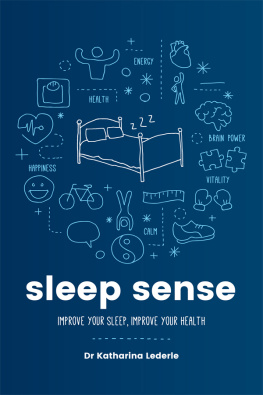
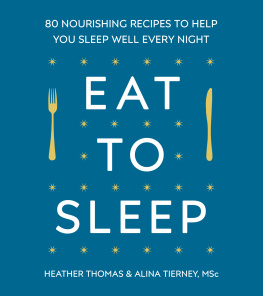
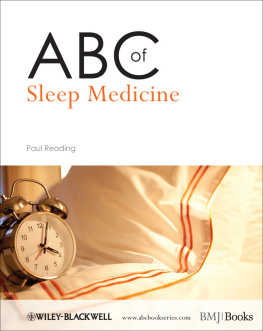

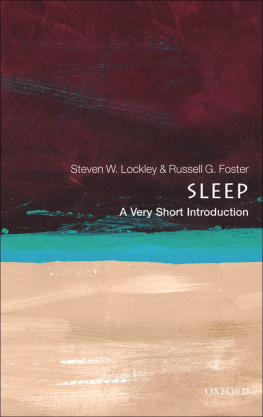
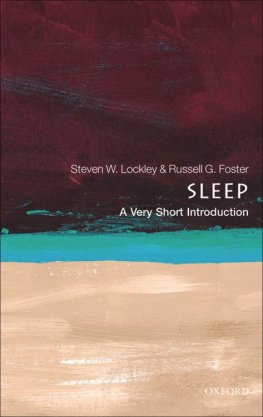
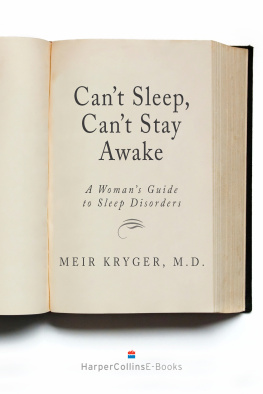


 FREE PRESS PAPERBACKS
FREE PRESS PAPERBACKS

